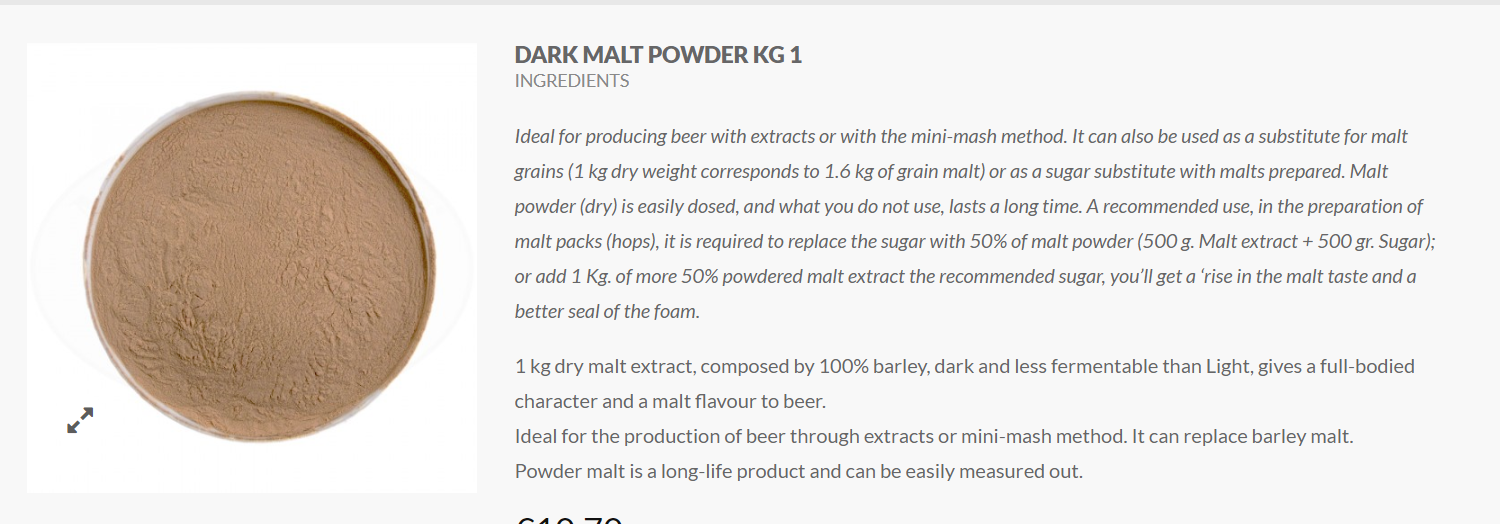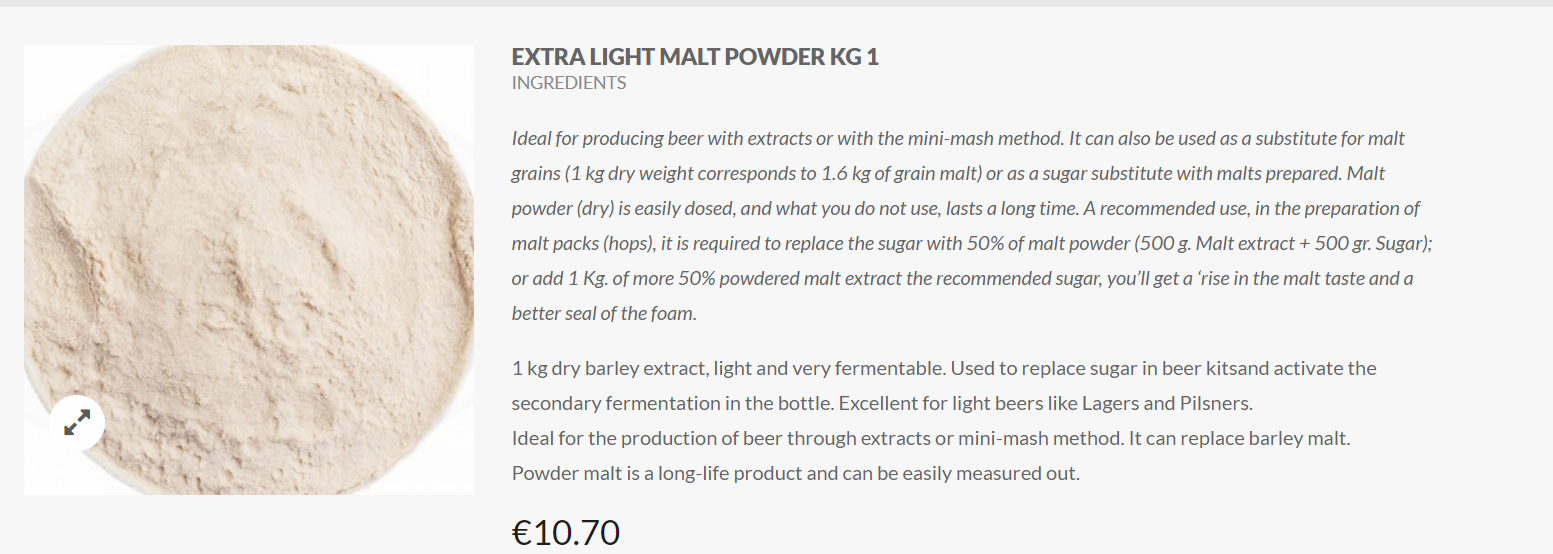This is dark DME (dry malt extract). Dark in that it's meant to produce a dark roasty beer like a stout or porter. It doesn't look super dark in the picture because even the darkest beers typically only include 10-15% dark grains, but that relatively small percentage of the total grain contributes a ton of color. In other words, when this DME is mixed with water, it will be coffee-black, even though the extract itself is only the color of cocoa powder.
Using DME to replace some or all of the sugar in a kit and kilo recipe kit is typically a good move unless you're aiming for a dry, light tasting brew, but it's best to use pale, light, or extra light DME. The specialty malt profile for the recipe (dark, roasty, caramelly, etc) is already present in the base extract kit, so adding more specialty DME like this would be likely to overdo it. Dark DME would be more suited to making your own all-extract porter or stout recipe than adding to a kit, unless you were trying to turn a stout kit into an imperial stout or something like that.























































![Craft A Brew - Safale S-04 Dry Yeast - Fermentis - English Ale Dry Yeast - For English and American Ales and Hard Apple Ciders - Ingredients for Home Brewing - Beer Making Supplies - [1 Pack]](https://m.media-amazon.com/images/I/41fVGNh6JfL._SL500_.jpg)





